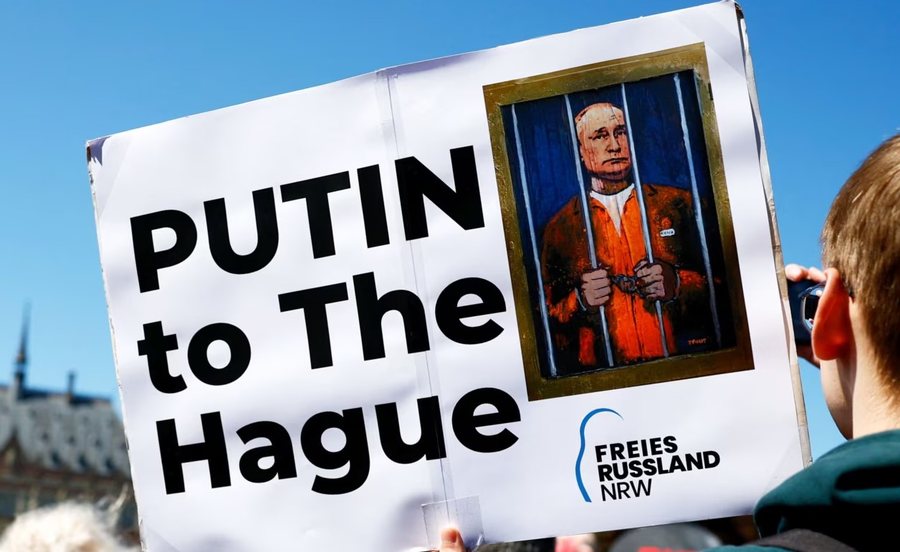
European Union foreign ministers will gather in Warsaw on May 7 and 8 for an informal meeting and then travel to Lviv a day later to show solidarity with Ukraine as Russia celebrates Victory Day.
None of the meetings are formal EU council meetings, so no concrete decisions are expected. However, the foreign ministers are expected to begin work on establishing a special tribunal to investigate and hold Russia accountable for crimes of aggression committed in Ukraine.
The Special Tribunal for the Crime of Aggression against Ukraine, as it is called, will be formalized on May 14 in Luxembourg, when the Committee of Ministers of the Council of Europe meets, reports A2.
What is the Special Tribunal for the Crime of Aggression against Ukraine?
Shortly after Russia launched its full-scale invasion of Ukraine in February 2022, the International Criminal Court (ICC) opened an investigation into allegations of war crimes, crimes against humanity, and genocide committed by Russian forces.
This includes violations on Ukrainian territory since the Maidan Revolution in November 2013.
The new tribunal will deal with crimes of aggression, over which the ICC has no jurisdiction. This tribunal will be an international court based on Ukrainian jurisdiction, with legal personality under international law, Ukrainian law and the law of the country where it will be located. Strasbourg in France, the official seat of the Council of Europe, was initially envisaged, but the tribunal could end up in The Hague.
What constitutes a crime of aggression?
According to the tribunal's draft statute, the "crime of aggression" means "the planning, preparation, initiation or execution - by a person having effective control over or directing the political or military action of a State - of an act of aggression which constitutes a manifest violation of the Charter of the United Nations by its character, gravity and scale".
The statute states that "act of aggression" means "the use of armed force by a state against the sovereignty, territorial integrity or political independence of another state."
Many of the actions Russia has taken in recent years, such as invasions, annexations, naval blockades, and bombings of civilian and military targets in Ukraine (although Russia denies these), constitute acts of aggression. In legal terms, Russia's invasion is considered an "unjust war" or "war of aggression."
The term "crime of aggression" encompasses a wide range of acts that may also include war crimes or genocide. The Tribunal will cooperate closely with the ICC in the allocation of cases.
The tribunal will have the power to "investigate, prosecute and try persons who bear the greatest responsibility for the crime of aggression against Ukraine."
Crimes of aggression are, in other words, so-called "crimes of leadership," committed by individuals who have effective control over political or military actions. This includes politicians in Russia and potentially those in other countries that have contributed to undermining Ukraine's territorial integrity – such as Belarus, Iran, and North Korea.
Does Putin enjoy immunity from prosecution?
Russian President Vladimir Putin and his close cabinet members enjoy immunity from prosecution while in office, through what is known as the "immunity triangle" for sitting presidents, prime ministers and foreign ministers. This often includes defense ministers.
This immunity can technically only be lifted by the United Nations, but since Russia is a permanent member of the UN Security Council, even this becomes nearly impossible.
Therefore, the tribunal is likely to hold many hearings and make decisions "in absentia," which would be possible under the draft statute.
What exactly will the tribunal do?
A group of key countries has been gathering evidence together with Ukraine since 2023, which means that the work has already begun. It is more or less a “legal coalition of the willing”, made up of around 40 states, including most EU member states except Hungary and Slovakia; the G7 countries except the US, which has signaled that it will not participate; and other Council of Europe countries.
Any country can join this coalition at any time.
A management committee, composed of officials from the core group, will now select the judges and a prosecutor.
The draft statute states that "the judges of the Special Tribunal shall be persons of high moral character, impartiality and integrity, who possess the qualifications required in their countries for appointment to the highest judicial positions."
"They shall be independent in the exercise of their functions and shall not accept or seek instructions from any government or other source. There shall not be two or more prosecutors from the same state."
The prosecutor will be elected through secret ballot by absolute majority by the management committee for a seven-year term.
If a person is found guilty by the tribunal, they could face sentences ranging from several years in prison to life imprisonment, as well as a fine.
Convicted persons will serve their sentences in a country that has entered into a specific agreement with the tribunal. If there is no such country, "the sentence may be served in Ukraine."/ REL (A2 Televizion)











